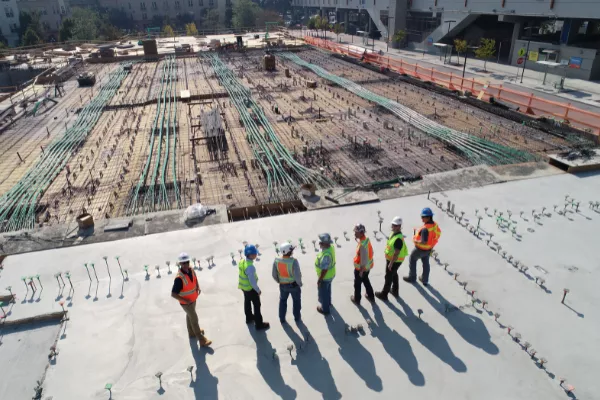
Construction. Can we change and learn?
As lecturers and educators, you have an important role to play in fostering a new culture and I would urge you to instil a sense of responsibility and professionalism in your graduates. You have a key role to play in changing the industry and creating a culture of openness, collaboration and learning.
The Building Safety Act
In the UK, the Building Safety Act received Royal Assent after 3 years of consultations in April. This Bill addresses the horrifying consequences of the Grenfell fire in June 2017, which resulted in the deaths of 72 people, the youngest of which was a 6-month-old baby. It is depressing and hard to accept that such a fire was possible after an almost identical catastrophe killed 6 people in 2009 at Lakanal House, resulting in a report that seems to have largely gone unnoticed in the industry.
The CIOB has fully supported the introduction of the Act to ensure industry professionals are held accountable for their decisions, but mostly as an opportunity to mark a real change in the industry that could bring construction into professional status on a par with medicine or aviation. There is no doubt that construction is a safety-critical industry with the power to make a real difference to people’s health, safety and wellbeing and we need to educate people to understand this. We were disappointed but not disheartened that the Building Safety Manager role was not included as a duty holder role as there is widespread agreement that the owners of buildings will need to appoint competent professionals to ensure the safety of their properties.
Building Safety Management
In 2021 we introduced our Building Safety Management Diploma and I was delighted to present the first cohort with their certificates at our Safer Buildings Conference on 26 May. They were so inspiring and hardworking that I know they will make a difference to their residents. Building Safety Management is a key discipline in promoting the residents’ voice and delivering the golden thread set out in Dame Judith Hackitt’s Independent Review of Building Regulations and Fire Safety. I am sure that Building Safety Management will be an important discipline in improving our industry regardless of whether it is named in legislation. Whether you are teaching in the UK or overseas, Dame Judith Hackitt’s report is worth reading.
Industry Culture
One critical issue for the next few years is to tackle the “culture of indifference” in the industry and the “race to the bottom” in addition to the recommendations that we learn from other industries. It is worthy of note that the aviation industry suffered years of poor safety until it widely introduced Crew Resource Management (CRM), which aims to foster a culture where authority can and must be respectfully challenged. CRM methodology includes situational awareness, communication skills, teamwork, task allocation and decision-making and error management within a comprehensive framework of standard operating procedures (SOP’s). In short, CRM utilises all human resources on board regardless of rank or role and encourages collaboration to avoid the single point of error. I do wonder if our hierarchical approach to construction projects discourages challenge or questioning and whether we need to adopt a similar process to the aviation industry to drive a culture of safety both on site and for end users of buildings and to instil a sense of pride and purpose in what we do.
I am pleased that the accreditation panel have introduced elements into the process that test how well the university is developing graduates that can challenge our industry, but we do need to make efforts that will enable this as it is a big ask of a new graduate, perhaps on their first job on site.
As an industry, we are fragmented and task or tick box focussed, adversarial and focussed on blame when things go wrong. Therefore, we do not properly use the vast resources we have.
Situation awareness is about utilising all the eyes and ears on site throughout a project and could go a long way to avoiding both on-site accidents and the catastrophic breaches that led to the Grenfell fire. It’s about appreciating that every single person has a role to play in ensuring the safety of the project for both the site personnel and the end users.
I do fear that the Grenfell Inquiry could focus too much on culpability at the expense of learning, which is key to changing the culture. The aviation industry, while holding people accountable, looks for learning in both accidents and potential accidents or near misses to avoid these being repeated. These accidents and events become mandatory training for new pilots. We should be making sure all our potential new construction professionals learn from past mistakes and understand the importance of creating an open and collaborative culture, which will prevent such tragedies in the future.
As lecturers and educators, you have an important role to play in fostering this new culture and I would urge you to instil a sense of responsibility and professionalism in your graduates. You have a key role to play in changing the industry and creating a culture of openness, collaboration and learning that will prevent another Grenfell. We had the opportunity to learn from Lakanal House and squandered it. Let’s not do that again.
Contact our Press Office
We welcome requests for information, comments and interviews from journalists across the globe so please feel free to contact us: